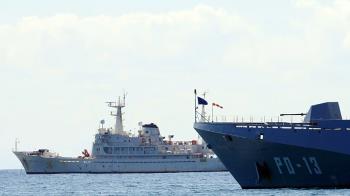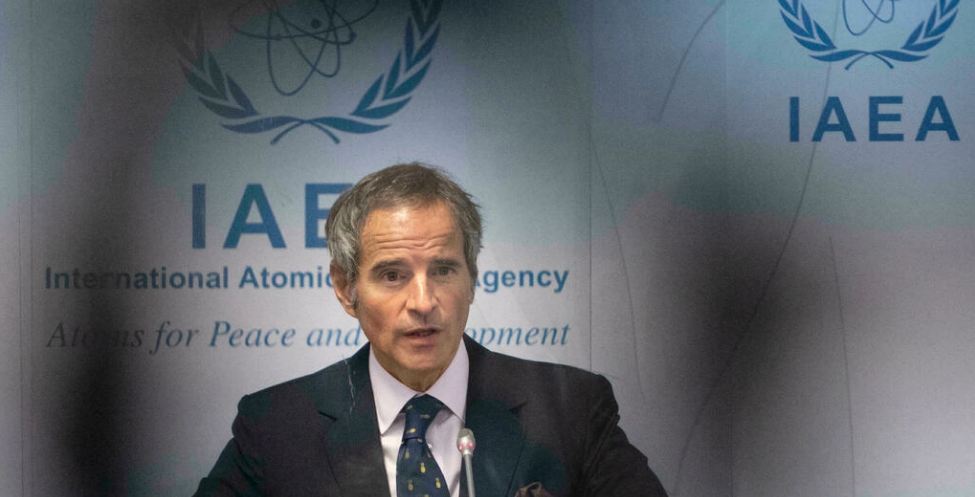The head of the International Atomic Energy Agency (IAEA) says the UN nuclear watchdog believes everyone should sign the Non Proliferation Treaty (NPT), and that the Israeli regime is no exception.
In an exclusive interview with Press TV on Tuesday, IAEA Director General Rafael Grossi was asked about the Agency’s stance on Israel, which has long been in possession of undeclared nuclear arms, refusing to join the NPT, and attempts to pile pressure on NPT signatory Iran.
Grossi replied, “What I can say is that we believe that every country should subscribe to the nuclear Non Proliferation Treaty. This is something which is very important. The General Conference of the IAEA has approved several resolutions insisting that every state in the world adheres to this treaty, which we believe is very important.”
He said the IAEA General Conference had “repeatedly approved resolutions exhorting” Israel, among others, to be part of the NPT.
‘Very constructive talks in Tehran’
Elsewhere, Grossi said he has held “very constructive” talks with Iranian officials as part of “a long day of discussions, talks, and negotiations” during a visit to the Islamic Republic.
He met with Foreign Minister Hossein Amir-Abdollahian and head of the Atomic Energy Organization of Iran, Mohammad Eslami during his stay so far.
He said he was paying the visit after the two sides agreed during a trip by Grossi to Tehran in September that he should travel to the country soon to sit down with officials from Iran’s new administration.
“The relation between the agency and Iran is a permanent one…is a continuous one,” the IAEA chief also said.
Through its latest quarterly report, the agency affirmed conducting its routine regulatory checks of Iran’s nuclear energy program.
The United States and its Western allies, however, regularly come up with unfounded accusations concerning the quality of the bilateral cooperation between Iran and the IAEA. Tehran routinely refutes the allegations, citing technical facts to the contrary and reasserting its constant intention of working transparently with the international body.
The report cited only one instance of difference arising from Iran’s inability to allow the agency access to one location owing to underway legal and security investigation into a “terrorist action” targeting the facility.
The Islamic Republic’s nuclear facilities and scientists have come under repeated, and often deadly, terrorist attacks. The Israeli regime has either admitted to conducting the incidents or is the prime suspect in all of them.
Iran has asked the agency to help it complete the investigations.
Asked about the agency’s stance on such atrocities, Grossi said, “The use of violence is absolutely condemnable.”
The IAEA chief was then questioned about its position on the Israeli regime’s possession of a nuclear arsenal and the regime’s simultaneous refusal to subscribe to the Nuclear Non-Proliferation Treaty (NPT).
Asked whether the agency was subjecting Iran to “prejudicial treatment” by consistently turning up the heat on the Islamic Republic, but refusing to adopt the same approach towards the Israeli regime, he denied that the agency had ever taken a political stance towards the Islamic Republic.
Grossi, however, condemned refusal by certain parties across the world to accede to the NPT, calling participation in the treaty “very important.”
The director-general was also asked about the issue of the United States’ own nuclear weapons program as well as Washington’s 2018 withdrawal from the nuclear agreement between Iran and others, and its re-introduction of its sanctions against the Islamic Republic.
The IAEA’s mandate is a “non-proliferation mandate not a disarmament mandate,” he said, and considered holding the US responsible for its violations of the nuclear accord to be outside the agency’s jurisdiction.
“The agency does not have or did not have competences in terms of the political decision of a country to remain or to withdraw from the agreement,” he said.
“So, in that regard, what we continued to do was to verify compliance or lack thereof of the provisions of the nuclear aspects of the JCPOA. And this is what we continue to do,” he added, referring to the deal by the acronym of its official name, the Joint Comprehensive Plan of Action.
“IAEA cannot be a party to solution of the sanctions problem. This is a political issue that needs to be solved between the United States and Iran, and I hope they would be able to do that.”



























